| |

Homo Erectus
Empathicus |
a really long time ago |
Hunter, Gatherer, Philosopher
"Share your food with others like you would wish
them to share with you.
Groom others as you would like to be groomed."
|
| |
|
|
|
| |
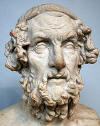
Homer |
ca. 8th century BC
(Greek) |
Ancient Greek Epic Poet
"Yet, taught by time, my heart has learned to glow for other's good,
and melt at other's woe." |
| |
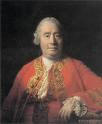
David Hume |
1711-1776
(Scottish) |
Philosopher, Economist, Historian
(on sympathy)
Argues that foundations of
morals lie with sentiment, not reason.
"Sympathy, for Hume, is a principle for the communication and
sharing of sentiments, both positive and negative. In this sense, it
is akin to what contemporary psychologists and philosophers call
empathy."
Wikipedia
He says, "the minds of men are mirrors to one
another, not only because they reflect each others emotions, but
also because those rays of passions, sentiments, and opinions may be
often reverberated, and may decay away by insensible degrees."
"Tis evident, that
sympathy, or the communication of passions, takes place among
animals, no less than among men" |
| 1759 |
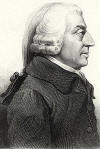
Adam Smith |
1723-1790
(Scottish) |
Moral
Philosopher, Pioneer of Political Economy (on sympathy)
Talks about sympathy as "fellow feeling" and as a social glue.
"How selfish soever man may be supposed, there are evidently some
principles in his nature, which interest him in the fortune of
others, and render their happiness necessary to him, though he
derives nothing from it except the pleasure of seeing it."
"Society is ... the mirror in which one catches sight of oneself,
morally speaking."
"As we have no immediate experience of what other men
feel, we can form no idea of the manner in which they are affected, but
by conceiving what we ourselves should feel in the like situation." |
| 1821 |

Percy
Bysshe Shelley |
1792 -1822
(English)
|
Romantic Poet
(on sympathy)
"The imagination is enlarged by a sympathy with pains
and passions so mighty, that they distend in their conception the
capacity of that by which they are conceived;"
"The great secret of morals is love; or
a going out of our nature, and an identification of ourselves with
the beautiful which exists in thought, action, or person, not our
own. A man, to be greatly good, must imagine intensely and
comprehensively; he must put himself in the place of another and of
many others; the pains and pleasure of his species must become his
own. The great instrument of moral good is the imagination."
A Defense of Poetry |
|
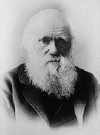
Charles Darwin |
1809-1882
(English) |
Naturalist (on sympathy)
Talks about sympathy
"the social instincts lead an animal to take pleasure in the society of
its fellows, to feel a certain amount of sympathy with them, and to
perform various services for them. "
"sympathy, which, as we shall see, forms an essential part of the
social instinct, and is indeed its foundation-stone." |
| |
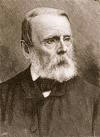
Friedrich Theodor Vischer |
1807 -
1887
(German) |
German
Philosopher and Literary Historian
Used the term Einfühlen "feel into" or "in-feeling in
explorations of Idealism relative to architectural form, |
| |

Henry David Thoreau |
1817-1862
(American) |
Writer, Essayist, Philosopher,
Transcendentalist
Could
a greater miracle take place than for us to look through each other's
eye for an instant?
|
| 1873
|
Robert Vischer |
1847-1933
(German) |
German Art
Historian and Philosopher
The projection of feelings into art work.
He is credited with the first to use the word
Einfühlung
to explain how we "feel into"
or "in-feeling" of works of arts and nature in his work, On the Optical Sense of Form: A Contribution to Aesthetics, 1873.
His father
Friedrich Theodor Vischer
had used a similar term |
| 1858
|

Rudolf
Hermann Lotze |
1817-1881
(German) |
Philosopher and Logician
(some sources credit Lotze with translating Einfühlung into empathy,
but that doesn't seem accurate, most say it was Titchener)
Mikrokosmus 1858
Coined 1858 by Ger. philosopher Rudolf Lotze (1817-81) from Gk.
empatheia "passion," from en-
"in" + pathos "feeling" (see
pathos).
|
| |

Wilhelm Wundt
|
1832-1920
(German) |
Father of Experimental
Psychology
used empathy in terms of human relationships in an
aesthetic doctrine,
When empathizing with a work of art, the beholder physically
imitates the object and imaginatively projects himself into the
object.
|
|
1897 |

Theodor Lipps
|
1851-1914
(German) |
German Psychologist-Philosopher
a student of Wundt
Einfühlung - "transfers it to psychology in an attempt to explain
how we discover that other people have selves"
The Ästhetik (1903-06) of Theodor Lipps is the most extensive
analysis of empathy, Presented with a host of examples from the
visual arts
Brings word form aesthetics to physiology
The act of projecting oneself into the object of a perception.
Story of circus performer (man on a high wire) you feel it.
Said,
"when I observe a circus performer on a hanging wire, I feel I am inside him" |
|
1905 |

Sigmund Freud |
1856-1939
(German) |
Psychologist
Freud and the history of empathy. Freud picks up on it from
Lipps
sychodynamics of putting oneself in another person's position
|
| 1909 |

Edward
Titchener |
1867-1927
(English) |
Psychologist
He coined the word "empathy" (feeling-in), as a translation of the German
Einfühlung.
Empathy neologism from Greek empatheria - which means appreciation of another
person feelings.
"Process of humanizing objects, of reading or feeling ourselves into
them"
|
| 1909 |
|
|
empathic (adj.) is from 1909 |
| 1917 |

Edith Stein |
1891 - 1942
(German) |
Philosopher and Nun
"Empathy...is the experience of foreign consciousness in
general...This is how man grasps
the psychic life of his fellow man" |
| 1918 |
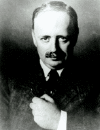
Elmer E. Southard |
1876-1920
(American) |
Psychologist
- used
empathy between patient and clinician
|
| 1924 |
|
|
The term 'empathize' was coined in 1924. |
| 1929 |

Wolfgang Kohler |
1887-1967
(American) |
German
educated American Psychologist
Co-founded school of Gestalt psychology
Argued empathy was more cognitive rather than "feeling into"
|
|
1932 |

Jean Piaget |
1896-1980
(Swiss) |
Psychology,
Sociology and Philosophy of Science at the University of Neuchatel.
Emphasized the
cognitive over the emotional
|
|
1934 |

George
Herbert Mead |
1863 - 1931
(American) |
Philosopher, sociologist and psychologist,
Emphasized the cognitive over the emotional
Understanding how people view the world, more perspective
taking
|
| |

Heinz Kohut |
1913-1981
(American) |
Clinical psychologist -
Chicago Institute for Psychoanalysis
Main person to Introduce empathy in psychoanalysis.
He considered empathy as a form of internal scientific inquiry.
Empathy: Abstract & Operational
|
 |
Video:
Heinz Kohut - Reflections on Empathy
Another reason to go back to empathy
I have a responsibility about the abuse of this concept.
Other's claim that empathy cures, I don't believe that at all.
Introspection and empathy as an informer of appropriate action.
Empathy can be used for kindness or hostility.
Absences of the mother, leads to emptiness, Analysis cures and
empathy plays a role. |
|
| 1942 |

Carl Rogers |
1902-1987
(American) |
Clinical psychologist and therapist
Very influential in the exploration of empathy
Was
Prominent
Psychologist. Much of the empathy work in
psychology and psychotherapy is based on his work on empathy.
Author: Client
Centered Therapy
Author: On
Becoming a Person
and others
Article:
Empathic: An Unappreciated Way Of Being
Article:
Experiences in Communication |
 |
 |
|
1981 |
Martin Hoffman |
|
Professor of Psychology
at New York University (NYU).
Empathy as a biologically based disposition for altruistic
behavior
|
| 1990's |

Giacomo Rizzolatti |
1937-
(Italian) |
He lead team that
discovered
mirror neurons:
Leonardo Fogassi,
Giuseppe Di Pellegrino,
Luciano Fadiga,
Vittorio Gallese

|
| 2008 |

Barack Obama
|
1961 -(American) |
USA
President
Barack Obama ran for U.S.
President saying that the country had an
'empathy deficit' that needed
to be filled. His 'value system' is build on the value of
empathy.
|
| 2009 |

Barack Obama
|
1961 -
(American) |
USA
President
President
Barack Obama says he will
choose a Supreme Court Judge that has empathy. |
| 2009 |

US Senate |
|
Senate Debate on
Empathy
US Senate has an extensive and ongoing debate about the relationship
of empathy to justice and the Supreme Court. |
| 2009 |

Frans de
Waal
|
1948 -
(Dutch) |
Primatologist and Ethnologist.
Director of
Living Links Center at the
Yerkes National Primate Research Center
in Atlanta.
Publishes his book
The
Age of Empathy |
| Now |
There is now an explosion of people working on empathy from all
different fields and disciplines.
See the Empathy Experts page. |